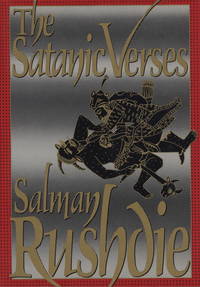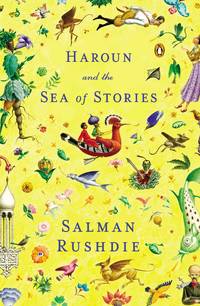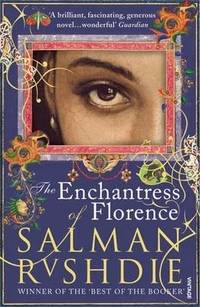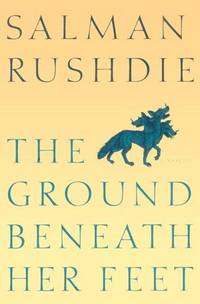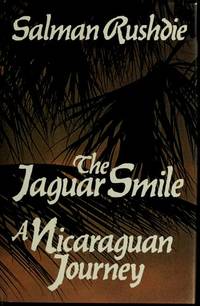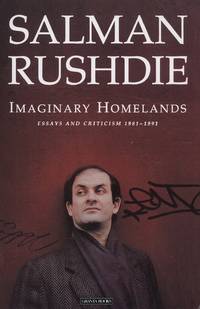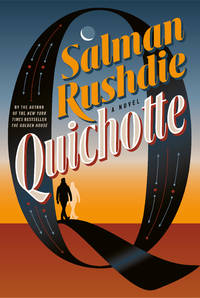He grew up in Mumbai (formerly Bombay) and then graduated with honors from King's College, Cambridge in England. His narrative style, blending myth and fantasy with real life, has been described as connected with magical realism.
Rushdie has received many awards for his writings including the European Union's Aristeion Prize for Literature. He is also a fellow of the Royal Society of Literature and Commandeur des Arts et des Lettres.
His writing career began with
Shame, where he depicts the political turmoil in Pakistan by basing his characters on Zulfikar Ali Bhutto and General Zia ul-Haq. Both these works are characterized by, apart from the style of magical realism, the immigrant outlook of which Rushdie is so very conscious.
Rushdie is also highly influenced by modern literature.
Midnight's Children borrows themes from Gunter Grass's novel The Master and Margarita.
India and Pakistan were the themes, respectively, of Midnight's Children and Shame. In his later works, Rushdie turned towards the Western world with
The Ground Beneath Her Feet, in which the influence of American rock 'n' roll on India plays a role. Midnight's Children receives accolades for being Rushdie's best, most flowing and inspiring work, but none of Rushdie's post-1989 works has had the same critical reception or caused the same controversy as
The Satanic Verses.
The publication of The Satanic Verses in 1989 caused controversy in the Fundamentalist Muslim world, due to its irreverent depiction of the prophet Muhammad. On February 14, 1989, a fatwa promising his execution was placed on him by Ayatollah Ruhollah Khomeini, the leader of Iran, calling his book "blasphemous against Islam". Furthermore, Khomeini condemned Rushdie for the crime of "apostasy" (i.e. attempting to abandon the Islamic faith) which according to the Hadith is punishable by death. This was due to Rushdie's communication through the novel that he no longer believes in Islam. Khomeini called on all "zealous Muslims" to execute the writer, as well as those of the publishers of the book who knew about the concepts of the book. On February 24 Khomeini then placed a three-million-US dollar bounty for the death of Rushdie. Rushdie lived for a time under British-financed security.
During this period, violent protests in India, Pakistan, and Egypt caused several deaths. Muslim communities throughout the world held public rallies in which copies of the book were burned. In 1990 Rushdie published an essay
In Good Faith to appease his critics and issued an apology in which he seems to have reaffirmed his respect for Islam. However, Iranian clerics did not retract the fatwa.
Rushdie's notorious friendships with occult groups and group members such as Anton LaVey and book shows at popular occult gatherings has linked him to occult activity. In various interviews Rushdie has professed to practicing occult activities including alchemy. This seemed to only fuel the fire of media and critics. His accusations and critical comments regarding the fatwa later made him a marked man in the Muslim community. Rushdie has made statements to defend his book but still many in the Muslim community consider him a wanted man. Famous people in the Muslim community stepped out in defense of their Muslim faith to protect their image.
Even popular musician Yusuf Islam (aka Cat Stevens) indirectly yet infamously stated his agreement with the fatwa. But later in 1989, Yusuf Islam said in a British television documentary that he wasn't against the death sentence in principle: Rather than go to a demonstration where Rushdie would be burned in effigy, "I would have hoped that it'd be the real thing" he said. If Rushdie showed up at his door, he said he "might ring somebody who might do more damage to him than he would like... I'd try to phone the Ayatollah Khomeini and tell him exactly where this man is." The New York Times reported that he stood by his statements in a subsequent interview. [1] (http://www.nytimes.com/books/99/04/18/specials/rushdie-cat.html)
The novel had been banned in India and South Africa and burned on the streets of some Arab neighborhoods in England. At the University of California, Berkeley, bookstores carrying the book were firebombed. In 1991 the Japanese translator was murdered and in 1993 Rushdie's Norwegian publisher was wounded in an attack outside his house. In 1997 the bounty was doubled, and the next year (before the Iran-UK agreement) the highest Iranian state prosecutor restated his support.
After the death of Khomeini, the Iranian Government publicly committed itself in 1998 not to carry out the death sentence against Rushdie. This was agreed to in the context of a larger deal between Iran and the UK to normalize relations. Rushdie afterward declared that he would stop living in hiding. Some believe that the fatwa died with the Ayatolla, but some fundamentalist Islamic media allegedly stated:
"The responsibility for carrying out the fatwa is not the exclusive responsibility of Iran. It is the religious duty of all Muslims those who have the ability or the means to carry it out. It does not require any reward. In fact, those who carry out this edict in hopes of a monetary reward are acting against Islamic injunctions."
In 1999 an Iranian foundation put a 2.8M USD bounty on Rushdie's head, and in 2012, a quasi-official Iranian religious foundation added a further $500,000 to the reward.
On August 12, 2022, Rushdie (age 75) was stabbed in the neck while speaking at an event at the Chautauqua Institution in New York.




